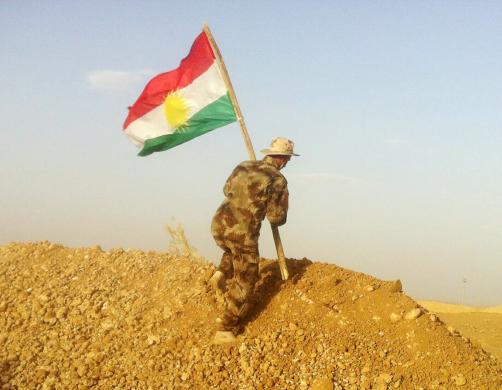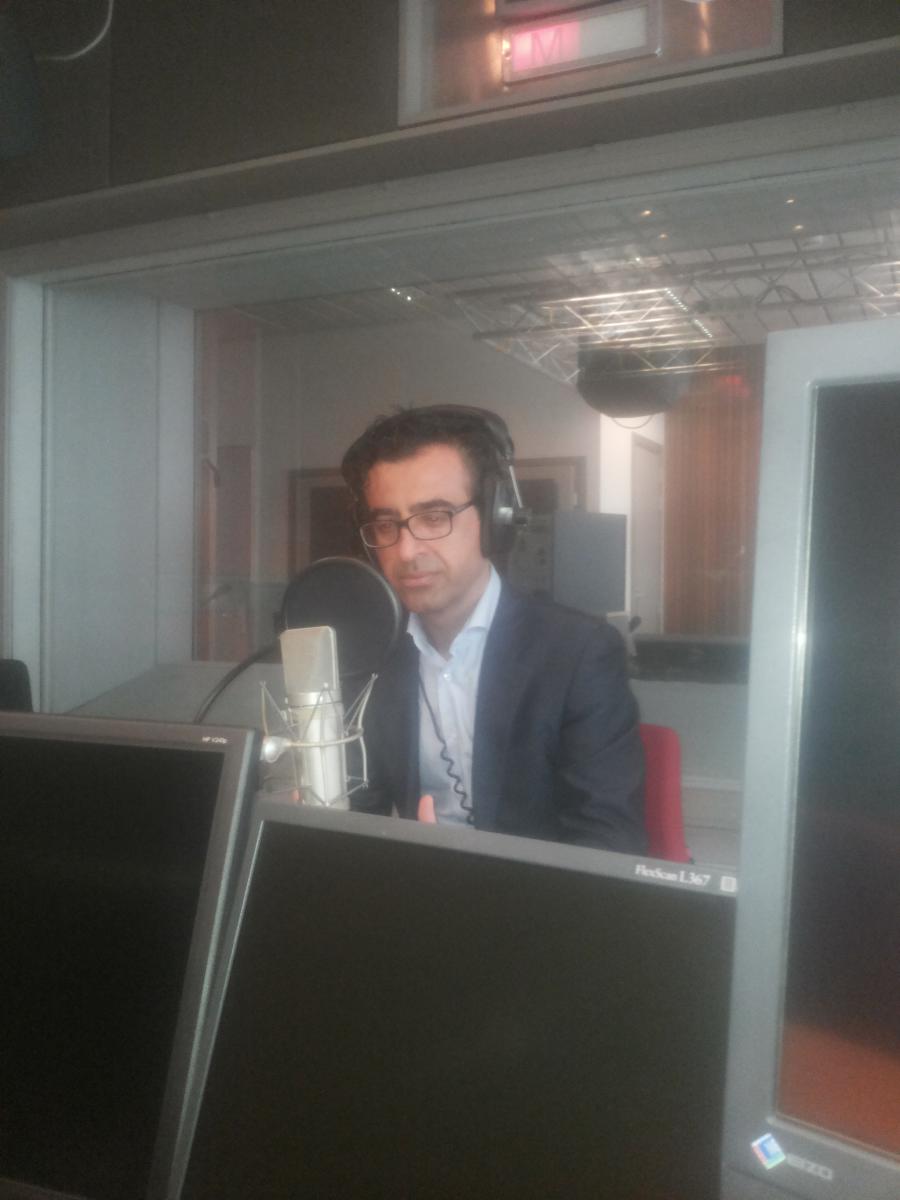Why Eurodeterrent Will Not Work
BY: ALEXANDER LANOSZKA
Is it that time again? Talk of Europe developing an independent military force is in the air amid doubts over the credibility of American security guarantees. In this iteration, the conversation revolves around the prospect of a so-called Eurodeterrent—a nuclear weapons force that falls under European Union (EU) auspices and (allegedly) operates independently of NATO. On the surface, this project would seem like a good idea. Rather than relying on a fickle Washington for their defense needs, EU members can use the Eurodeterrent to show that they are finally taking their own security seriously.
Yet many Pan-European defense initiatives are inconsequential and forgettable, and the Eurodeterrent promises to be no different in spite of Brexit and Donald Trump. After all, since the European Union cannot agree on refugee policy and workers’ rights, nuclear strategy seems like a bridge way too far. Indeed, the Eurodeterrent represents a serious underpants gnomes problem—that is, the misplaced faith that a single action automatically leads to the desired outcome. The first step, acquiring nuclear weapons, seems obvious enough but nevertheless features thorny problems that relate to potential changes to France's existing nuclear deterrent and the prospect of nuclear weapons development in Germany. The end goal is supposedly peace and stability. Yet many things must happen in between.
Consider all the controversies that would attend a pan-European nuclear force:
Targeting: What gets targeted with European nuclear weapons? Some EU members will desire a Eurodeterrent because it could help plug gaps in NATO’s deterrent posture relative to Russia. Yet others might prefer strategic ambiguity for fear of spoiling relations with Russia. Whatever the resolution of this issue, defense planners will still need to decide between counter-value (hitting population centers) and counter-force (hitting military assets) targeting. The latter of which might be more “humane,” but its technological requirements are higher and its alleged premium on first strikes risks undermining strategic stability.
Threshold for use: Under what circumstances would the Eurodeterrent be ever used? Of course, the EU could decree ambiguously—like France already does—that nuclear weapons will only be used to defend its vital interests. However, the vital interests of Latvia differ from those from Portugal. Would Lisbon agree to nuclear weapons use, and risk nuclear devastation, in response to a Russian conventional attack on the eastern Latvian region of Latgale? Probably not, and so Russia will still face incentives to engage in so-called hybrid warfare to test the EU’s redlines and to undermine the internal cohesion of the organization even further.
Delivery capabilities: EU defense planners would also have to decide how the EU would deliver nuclear weapons against the adversary. If it chooses a land-based ballistic missile capability, then some states might exhibit NIMBYism and reject having any missiles stationed on their territories whatsoever in order to avoid being early targets for nuclear devastation. Of course, sea-based and air-based deterrents are easier said than done. Notwithstanding Brexit, Great Britain already relies on the Vanguard class submarines to deliver nuclear-tipped Trident missiles. Yet its submarines and missiles both require American technology. European bombers will also be similarly dependent on U.S. defense contractors since they might need to develop long-range stand-off cruise missiles in order to overcome the increasing sophistication of air defenses. Simply put, the European defense industry may neither meet such technical requirements nor tolerate the embarrassment of relying on American good-will to sustain a survivable second-strike capability.
Command and control: Who gets to decide to deploy nuclear weapons in a crisis, within a very short amount of time no less? Will unanimous consent be required on the part of all states? If not, what safeguards will there be to prevent the tyranny of a nuclear-armed majority? To say nothing of accidental use, competing decision-making bodies and diverse national interests could intensify what Peter Feaver calls the always/never dilemma, that is, European nuclear weapons must always be available to be used, but they must also never be used absent an authoritative decision. Debates over who has the legitimacy to pull the nuclear trigger will likely rekindle old tensions.
These issues highlight only some of the controversies that European defense planners would need to tackle if they do seriously intend on pursuing an independent nuclear force. Domestic politics and moral concerns present further complications. In light of all these challenges, talk of the Eurodeterrent will bear no fruit since European decision-makers will inevitably want to avoid the troubling policy considerations it would involve. Like most other pan-European defense initiatives that came before it, this idea’s time will soon be up.
Alexander Lanoszka is lecturer in the Department of International Politics at the City, University of London. His research on alliance politics and European security has been published in International Security, Survival, International Affairs, and elsewhere. You can follow him on Twitter @ALanoszka or visit his website.
The views expressed in this post reflect those of the author and not that of the EastWest Institute.


 BNR: You say Iraq needs billions to reconstruct liberated areas. Some say Iraq perhaps needs 90 billion USD for reconstruction. Furthermore Iraq is considered one of the most corrupt countries in the world. Also the Kurds want to hold an independence referendum on Sept 25. Taken together this is a very complicated cocktail, isn't it?
BNR: You say Iraq needs billions to reconstruct liberated areas. Some say Iraq perhaps needs 90 billion USD for reconstruction. Furthermore Iraq is considered one of the most corrupt countries in the world. Also the Kurds want to hold an independence referendum on Sept 25. Taken together this is a very complicated cocktail, isn't it?